|
Today, you will work with your group to develop a presentation on your group's assigned conflict. Purpose: The purpose of this presentation is to provide a brief overview of the conflict for the rest of your classmates and to introduce some of the causes of the conflict. This not only become educational for your classmates to help them understand some of the other 20th Century conflicts that took place, but to also learn of some of the patterns we may see in causes for conflict. Additionally, one of the purposes and benefits for you is to help you better prepare for your summative debate on the causes of this conflict by letting you practice presenting details and evidence about the causes. This allows you an opportunity to practice speaking and using evidence to support the points you want to make through the use of historical evidence. And lastly, for the summative DBQ, you will need to find primary source images and text, and this allows you and your group to begin looking for those sources to possibly use for that summative as well. Note: It is recommended that as you work on this, you continue adding text evidence and notes to your INDIVIDUAL research notes document (WH Drop folder). It is also recommended that you begin adding primary source images (and the source for this). Not only will you need these primary source images for this presentation, but this will help you prepare for the summative DBQ by having a bank of possible images you may want to use for that summative task. Student groups will need to submit a link to their group's presentation. Here are the links you will need for today's class:
HW/Prep: continue working on your part of the group's presentationContinue working on your group's presentation (and your individual slide and responsibilities for contributing to the intro slide and/or the Works Cited slide). Due next class
Today you will sit with your assigned conflict group. You will begin Step #1 of your research, which is essentially brainstorming helpful questions, identifying helpful (reliable) resources, and begin identifying the causes of the conflict. You will work collaboratively on Step #1. When you finish with this, you should begin to work independently on Step #2 (which is your informal homework). The document you need is in your WH Drop folder. Helpful links: Link to assigned conflict groups HW/PREP: Continue research (independently) on assigned conflictYou will continue to research about the causes of your assigned conflict and begin taking more detailed notes about the conflict. You will need the notes for what you and your group will work on for next class, which will involve both independent research and a collaborative project.
Be sure you come to class with more detailed notes and sources about your conflict. Use the tables in Step 2 of the research document to help you organize your notes by each separate cause. Helpful Link for today's class + for videos and articles for the HW:
HW/REFLECTION + DISCUSSION - Due before next classLink to Fake News Presentation Helpful websites to help you check whether a news or story is reliable or not: HW: Pick your Top 3 of one of the following conflicts to independently researchList of Conflicts
Complete the following Google Survey to indicate your Top 3 picks. Each class will have 5-6 different conflict groups. No groups can be a duplicate (there will only be 1 group in each class researching a specific conflict). Mrs. Stewart will try to place you in a group of your Top 3 picks. The goal is that you are in a group research a conflict that 1. is of interest to you and 2. is at the right level of difficulty/complexity that you can handle. Today you will be getting your feedback on your formative argumentative essay. At this time, you may need to develop a stronger, more compelling and specific claim. Once you have a more specific claim to frame your argument, you will continue your research on WWI and find more evidence and details to help you substantiate and explain your position on the most significant underlying cause of WWI. You are encouraged (and expected) to use a variety of resources for your evidence. You will be expected to incorporate more historical evidence and details, further explore the important concepts of the WWI conflict -- in order to be able to demonstrate your understanding of these important concepts in your essay. You are also expected to use the relevant terminology, when appropriate, in your writing.
Helpful Resources for today's planning: WWI Argumentative Essay Planning - Google Slides Presentation WWI Essay Planning Document (Google Doc) Argumentative Writing/Speech Rubric (this is what will be used to assess your essay) |
Mrs. Stewart's CourseYou'll find a daily agenda posted here for each day that class meets Archives
May 2020
Categories |
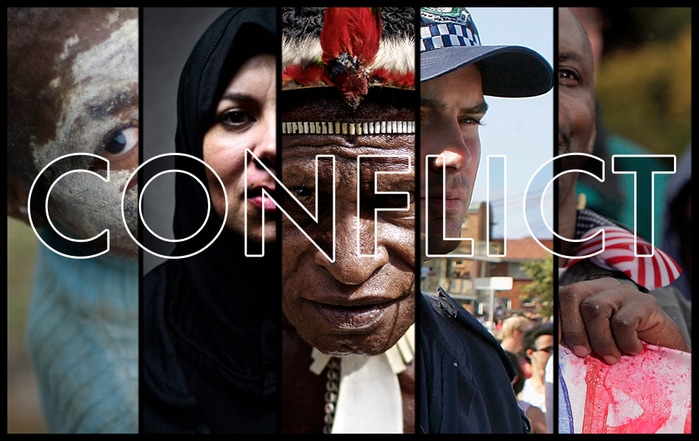
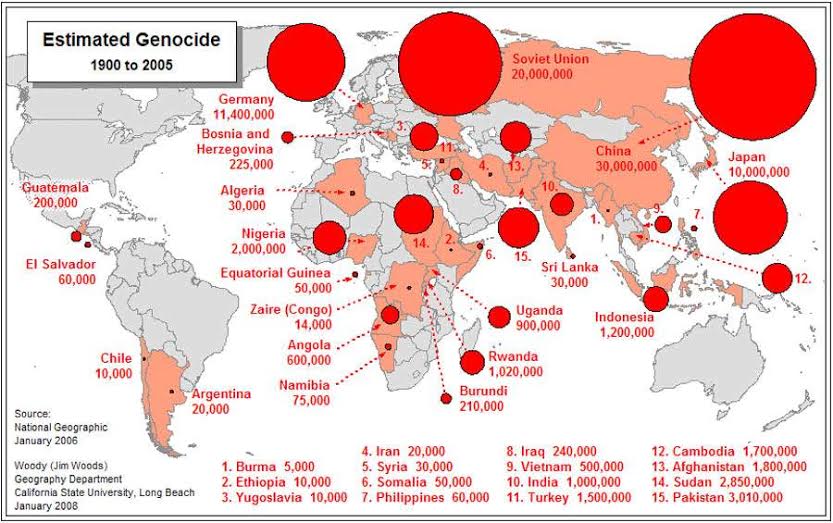
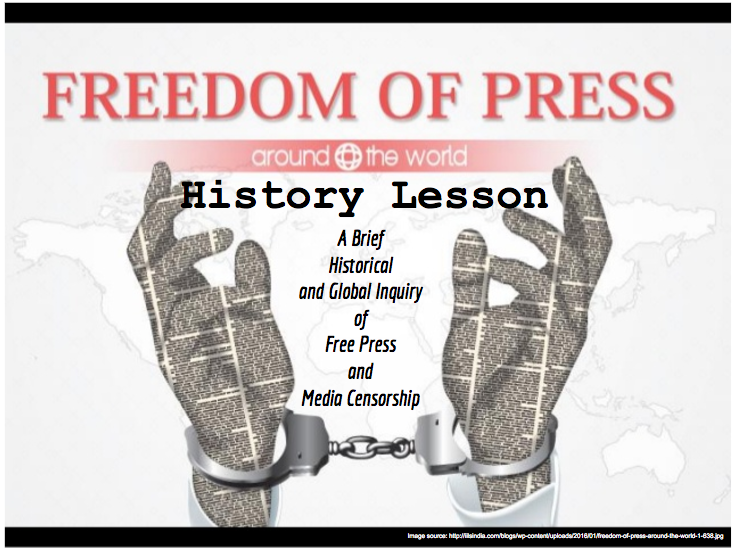
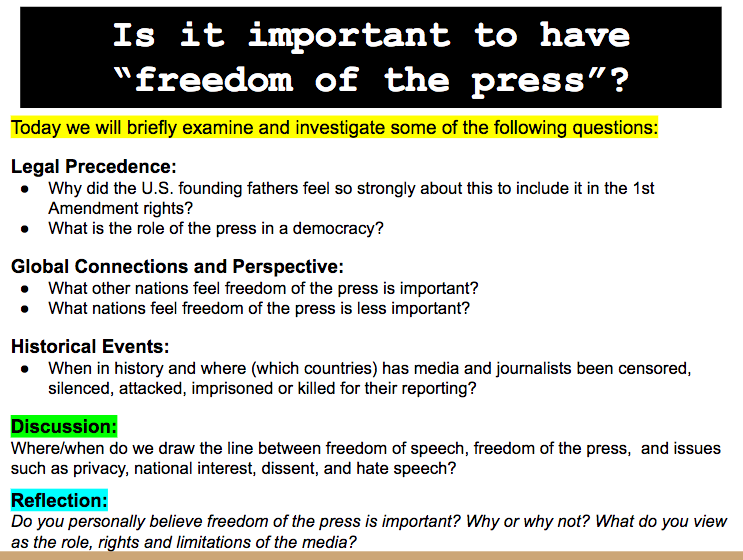
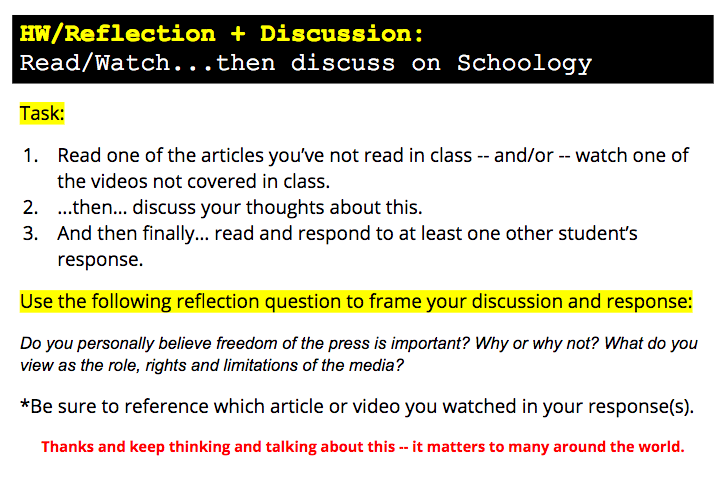
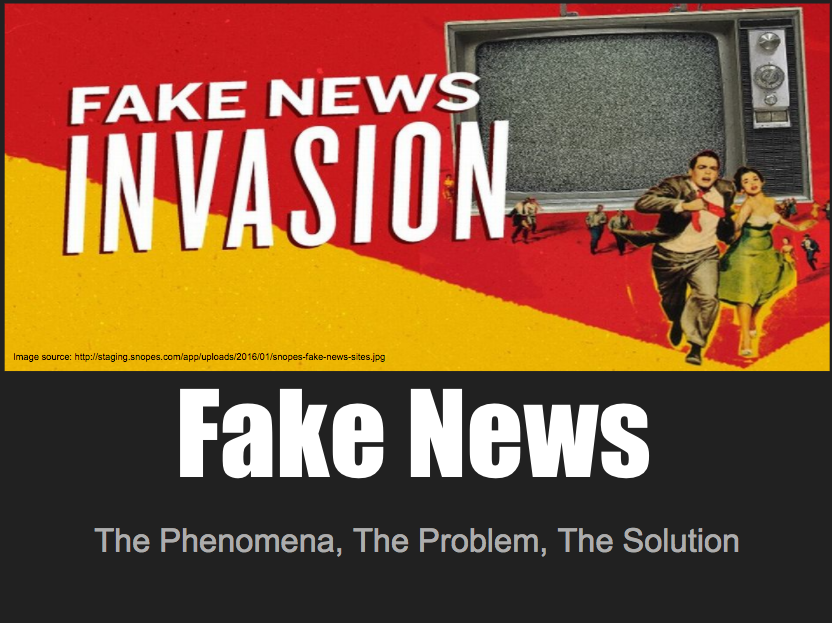
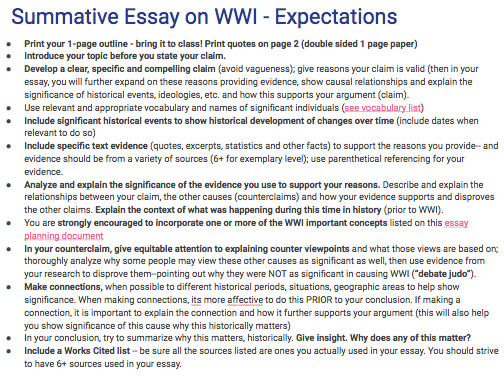
 RSS Feed
RSS Feed